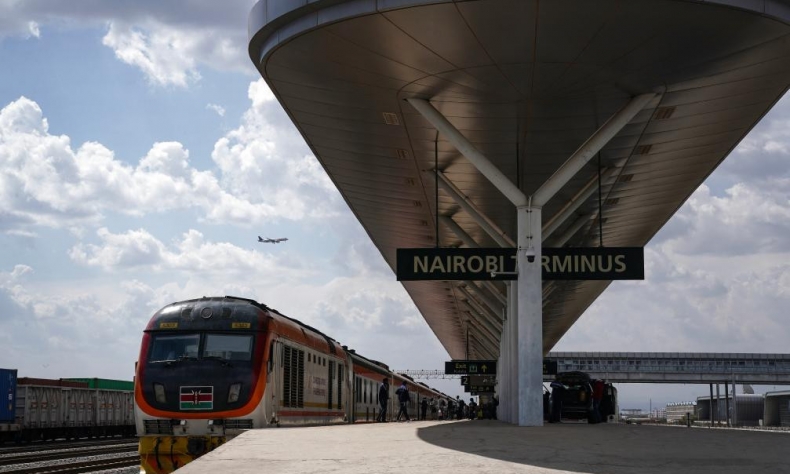The Belt and Road Initiative Will Accelerate High-Quality Development

The BRI project will be improved, so there will be more focus on quality rather than quantity.
Editor’s Note: This year marks the 10th anniversary of the launch of the Belt and Road Initiative (BRI). Over the past decade, the initiative has become an important cooperation platform for promoting connectivity. In an interview with China Focus, Maria Adele Carrai, assistant professor of Global China Studies at New York University Shanghai, shares her insights into the development of the BRI and the challenges it faces.
What is your general view on the Belt and Road Initiative (BRI)?
Maria Adele Carrai: I think what the Belt and Road Initiative reflects is a manifestation of global China. It’s an attempt of China to globalize, and it’s a combination of China going global and the push for Chinese companies to go abroad, internationalize and integrate with the global market. The good thing is that it ignited new [imaginations] of the developing world about connectivity, about the possibility to receive investments in infrastructures. I think the BRI not only brought back infrastructure, but also brought back areas of the world that have been partially marginalized, have been forgotten, like Africa. Africa is an example.
According to your observation, how does the BRI give developing countries a leg up? For example, how does the African continent benefit from it?
Maria Adele Carrai: I think that the large focus of the BRI is the developing world, the Global South. That’s true. But I think we also have to keep in mind that one of the goals [is] the European market. The goal [is] really to reach the European market through land and through the sea. But then the Global South is also very important for China, for political and economic reasons. We saw a big expansion of China in the Global South in the past years, from Africa to Latin America, etc. It has developed South-South relations through bilateral and multilateral mechanisms. A lot of countries in the Global South see China as an example, as a model, as a possibility as well. For instance, the case of Africa. Africa has been seen as kind of the lost continent, with a lot of resources. But now China comes in, in a much less paternalistic way than the West, and talks about win-win cooperation. But again, I think is an investment that came from China is also the new narrative of South-South cooperation, because China paradoxically still belongs to the South. China is not considered [part of] the Global North, although it has developed so incredibly in the past decades.
I think that China’s BRI is one of the prominent sources of development finance in Africa. China promised to spend trillions of dollars on infrastructure through the BRI, giving hope to a lot of developing countries, of course raising a lot of concern in the West about increasing Chinese global presence and standards and norms. I think that the key rhetoric here, or kind of stereotype, is a “debt trap”, which so far has not been supported by evidence. It’s true, though, that a lot of countries, including in Africa, have a lot of debt to China and COVID made the situation even worse for these African countries to pay back China. It’s definitely not that trap. I don’t think China is really plotting to put these countries into debt and taking assets away from them.
How do you see the voices of “deglobalization“ and “decoupling” in some western countries? What challenges would these political voices pose to the BRI?
Maria Adele Carrai: There are people now that talk about de-globalization. We’re in a phase of de-globalization. And I think the United States is also trying to decouple from China. Not so much the EU, for now, but there’s like this sort of “we need to take a step back and decrease our reliance on the Chinese market and supply chain”, because the pandemic and the war in Ukraine exposed the vulnerability of supply chains. There is an attempt [from the West] to decouple and de-globalize in some way, at least de-globalize from China. But the world is not following this Cold War mentality, necessarily. And many countries are not willing and cannot decouple from China. And even for the U.S., it’s very difficult to decouple, if not impossible to fully decouple. And probably the future of globalization, I think also the BRI reflects this trend, will lead to increased regionalism. And so, for instance, we have the RCEP. On China’s part, we’ll see also an increased focus on the Asian economy and China’s investments and trade with its neighbors. It will continue, I think globalization will still be there, again, maybe with a bit more of a regional focus, but it will still be there; it is impossible to de-globalize and the BRI will follow partially that trend.
What are your expectations for the BRI in the future?
Maria Adele Carrai: I think the BRI is here to stay. It will be complemented by the Global Security Initiative and Global Development Initiative, but the BRI will continue. It has been very powerful. Among scholars in the Global South or Europe, so much has already been discussed and imagined about the BRI that I think it’s hard to just disappear or fail. And so [in terms of] trends, I think moving forward, there are trends that already existed before the pandemic, but were just kind of accelerated. The BRI project will be improved, so there will be more focus on quality rather than quantity.
 Facebook
Facebook
 Twitter
Twitter
 Linkedin
Linkedin
 Google +
Google +










